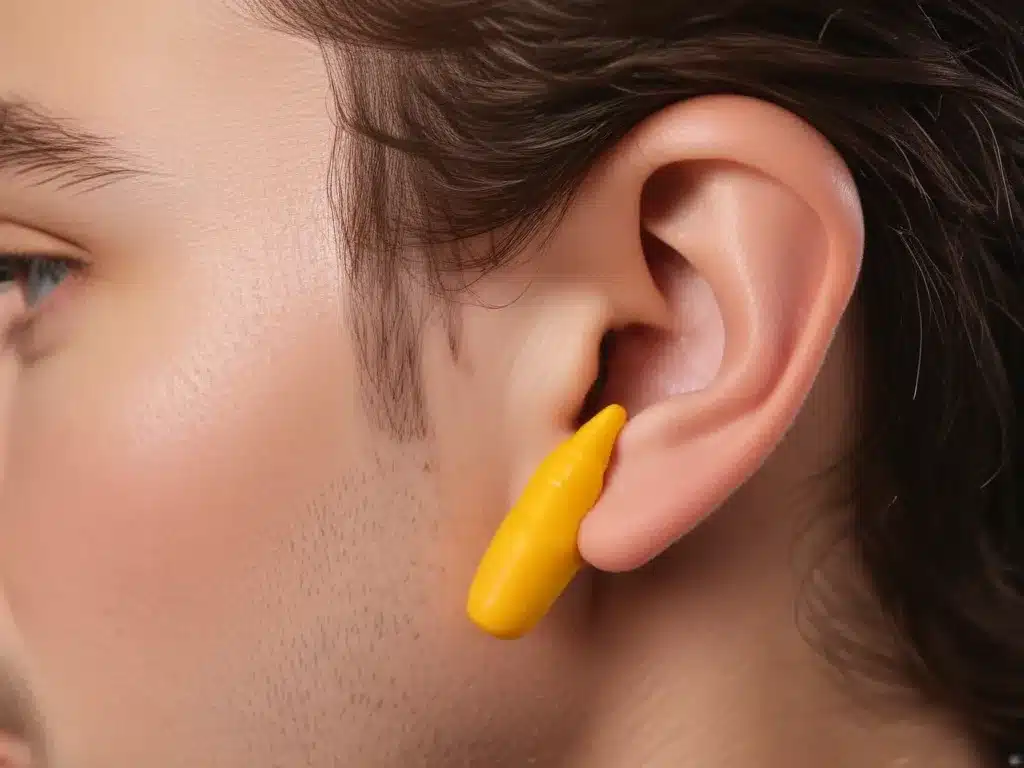The Rise of Biometric Authentication
Ah, the world of security – it’s like a never-ending game of cat and mouse, isn’t it? Just when we think we’ve got it all figured out, something new comes along and shakes things up. Well, my friends, that something new is biometric security, and it’s about to take the world by storm.
You see, for the longest time, we’ve been relying on traditional methods of authentication – passwords, PINs, and the like. But let’s be honest, those are about as secure as a paper bag in a hurricane. Anyone with a little bit of tech-savvy can crack those things open like a walnut. That’s where biometrics come in, swooping in like a superhero to save the day.
Biometric security, for the uninitiated, is all about using your unique physical or behavioral traits to verify your identity. Think fingerprints, iris scans, voice recognition, and even the way you walk. It’s like a secret handshake that only you know, and it’s nearly impossible to steal or replicate.
But don’t just take my word for it. The numbers speak for themselves. According to a recent report, the global biometric security market is expected to grow from $35.5 billion in 2020 to a whopping $68.6 billion by 2025. That’s a growth rate of around 14% per year, folks. It’s like the world has finally realized that the good old password is about as effective as a screen door on a submarine.
The Benefits of Biometric Security
Now, you might be wondering, “Why should I care about all this biometric mumbo-jumbo?” Well, my friend, let me tell you – the benefits of biometric security are as numerous as the stars in the sky.
First and foremost, biometric security is incredibly secure. Think about it – your fingerprint or iris pattern is as unique as your personality. It’s virtually impossible for someone to hack or steal your biometric data, which means you can rest easy knowing your sensitive information is safe and sound.
But the benefits don’t stop there. Biometric security is also incredibly convenient. Imagine being able to unlock your phone or log into your online accounts with a simple touch or glance. No more fumbling around with a dozen different passwords or PINs. It’s like having a personal security guard that’s always ready to let you in.
And let’s not forget about the time-saving aspect of biometric security. No more wasted minutes trying to remember that one password you used for that one account that time. With biometric authentication, you’re in and out in the blink of an eye.
But perhaps the most compelling benefit of biometric security is its ability to prevent identity theft. Think about it – if someone steals your password, they can wreak havoc on your life. But if they try to impersonate you using your fingerprint or iris pattern, they’re going to be sorely disappointed. Biometric security is like a fortress that even the most cunning thieves can’t breach.
The Challenges of Biometric Security
Of course, as with any new technology, there are always a few challenges to overcome. Biometric security is no exception.
One of the biggest concerns is privacy. After all, sharing your biometric data with a company or service can be a bit daunting. What if they misuse it? What if it gets hacked? These are valid concerns that need to be addressed head-on.
Another challenge is the potential for false positives or negatives. Imagine trying to unlock your phone only to be rejected because the sensor couldn’t quite make out your fingerprint. Or, even worse, someone else gaining access because the system thought it was you. It’s a delicate balancing act that manufacturers are still working to perfect.
And let’s not forget about the cost factor. Implementing biometric security systems can be a significant investment for businesses and individuals alike. It’s not something that everyone can just jump into without careful consideration.
But the biggest challenge of all might be the public perception of biometric security. Some folks are just downright uncomfortable with the idea of their personal data being used in this way. They might see it as a violation of their privacy or a slippery slope towards a Orwellian dystopia.
The Future of Biometric Security
Despite these challenges, I firmly believe that biometric security is the way of the future. The benefits are just too compelling to ignore, and as the technology continues to evolve, I think we’ll see these challenges gradually fade away.
Imagine a world where you can log into your bank account with a simple glance, or unlock your car with the touch of a finger. No more fumbling with keys or trying to remember that ever-changing password. It’s a future that’s not too far away, my friends.
And the applications of biometric security go far beyond just personal authentication. Imagine a world where hospitals can instantly verify a patient’s identity, or law enforcement can quickly identify suspects at the scene of a crime. The possibilities are endless, and the potential to improve our lives is truly staggering.
Of course, as with any new technology, there will always be those who are hesitant to embrace it. But I believe that as more and more people experience the convenience and security of biometric authentication, those concerns will start to fade away.
So, what do you say? Are you ready to join me on this biometric adventure? It’s going to be a wild ride, but I can assure you, it’s one that’s well worth taking.
Real-World Applications of Biometric Security
But don’t just take my word for it – let’s take a look at some real-world examples of biometric security in action.
One of the most high-profile applications of biometric security is in the world of smartphones. These days, it’s almost impossible to find a new phone that doesn’t come equipped with some form of biometric authentication, whether it’s a fingerprint scanner or facial recognition. And the results have been nothing short of impressive.
Take Apple’s Face ID, for example. It’s been hailed as one of the most secure and reliable facial recognition systems on the market, with a false acceptance rate of only 1 in 1 million. That means even your evil twin would have a hard time getting into your phone.
But smartphones aren’t the only place where biometric security is making waves. Financial institutions have also been quick to adopt this technology, using it to secure everything from ATM transactions to online banking.
One particularly interesting example is the use of vein recognition in Japan’s banking system. By scanning the unique pattern of veins in a person’s hand, banks can verify a customer’s identity with near-perfect accuracy. It’s like a high-tech version of the classic handshake – but one that’s a whole lot harder to fake.
And it’s not just the banking sector that’s embracing biometric security. Law enforcement agencies around the world have been using it to identify suspects and track down criminals. Fingerprints and iris scans have become invaluable tools in the fight against crime, helping to put the bad guys behind bars and keep our communities safe.
But the applications of biometric security don’t stop there. Imagine a future where you can unlock your front door with a simple palm scan, or access your company’s secure network with a quick voice command. The possibilities are truly endless, and the impact on our daily lives is only going to grow.
The Ethical Considerations of Biometric Security
Of course, as with any powerful technology, there are some ethical concerns that need to be addressed. After all, the idea of a company or government having access to our most intimate biometric data can be a bit unsettling.
One of the biggest issues is the potential for abuse. What if that biometric data falls into the wrong hands? Could it be used for nefarious purposes, like tracking our movements or even impersonating us? These are valid concerns that need to be taken seriously.
Another concern is the issue of consent. Should we be required to provide our biometric data to access certain services or facilities? And what about those who, for one reason or another, simply can’t or don’t want to use biometric authentication? Are we creating a world where they’re left behind?
Then there’s the question of accuracy and bias. Biometric systems, like any technology, can be prone to errors and inconsistencies. And in some cases, these errors can disproportionately impact certain groups, leading to unfair and discriminatory outcomes.
These are all important issues that need to be carefully considered as biometric security becomes more and more widespread. And it’s not just up to the companies and governments implementing these systems – it’s up to all of us as citizens and consumers to stay informed and hold them accountable.
The Role of Regulation in Biometric Security
As biometric security becomes more prevalent, the need for robust regulation and oversight has become increasingly clear. After all, we’re talking about some of our most sensitive personal data being used for authentication purposes. It’s not something that should be taken lightly.
Thankfully, there are already some efforts underway to address these concerns. In the United States, for example, the federal government has introduced the Biometric Information Privacy Act, which aims to provide a framework for the collection and use of biometric data.
Similar initiatives are also underway in other parts of the world. The European Union, for instance, has the General Data Protection Regulation (GDPR), which includes specific provisions for the handling of biometric data.
But the reality is that these regulations are still relatively new, and there’s a lot of work to be done to ensure they’re effective and comprehensive. After all, the technology is evolving at a breakneck pace, and lawmakers need to be able to keep up.
That’s why it’s crucial for governments, industry leaders, and civil society groups to work together to develop a robust and balanced regulatory framework. One that protects individual privacy and rights while still allowing for the benefits of biometric security to be realized.
It’s a delicate balancing act, to be sure. But it’s one that’s essential if we’re going to truly unlock the full potential of this transformative technology.
The Future of Biometric Security: Trends and Predictions
As we look towards the future, it’s clear that biometric security is only going to become more and more prevalent in our lives. And with that, we can expect to see some exciting new trends and innovations emerge.
One of the most promising areas is the integration of biometrics with other technologies, like artificial intelligence and the Internet of Things. Imagine a world where your smart home can recognize you the moment you walk through the door, adjusting the lights, temperature, and security settings to your personal preferences.
Another trend we’re likely to see is the diversification of biometric modalities. While fingerprints and facial recognition have been the dominant players so far, we’re starting to see a rise in the use of other biometric traits, like iris scans, vein patterns, and even behavioral characteristics like gait and typing patterns.
And let’s not forget about the potential for multi-factor biometric authentication. By combining multiple biometric factors, we can create an even more secure and robust authentication system – one that’s virtually impossible to hack or spoof.
But perhaps the most exciting development on the horizon is the potential for biometric security to go beyond just authentication and into the realm of personalization and customization. Imagine a world where your devices and digital experiences are tailored to your unique biometric profile, delivering a truly personalized and seamless experience.
Of course, as with any technological advancement, there will always be challenges and obstacles to overcome. But with the right combination of innovation, regulation, and public-private collaboration, I’m confident that we can navigate these waters and unlock the full potential of biometric security.
So, what does the future hold? Well, my friends, it’s hard to say for sure. But one thing is certain: the world of biometric security is about to get a whole lot more exciting.
Conclusion: Embracing the Biometric Future
As we wrap up our journey through the world of biometric security, I can’t help but feel a sense of excitement and anticipation for what the future holds.
Sure, there are challenges to overcome – privacy concerns, technical hurdles, and the need for robust regulation. But when I look at the incredible benefits that biometric authentication can bring to our lives, I can’t help but be optimistic.
Imagine a world where you can access your accounts, your devices, and even your home with the simple touch of a finger or the blink of an eye. No more fumbling with passwords, no more worrying about identity theft. It’s a future that’s within our grasp, and it’s one that I can’t wait to be a part of.
But it’s not just about the convenience and security that biometric technology can provide. It’s also about the way it can transform our lives in more profound ways. Think about the implications for healthcare, law enforcement, and even the way we interact with the digital world around us.
Sure, there will be those who are hesitant to embrace this new frontier. But I firmly believe that as the technology continues to evolve and the benefits become more and more apparent, those concerns will start to fade away.
After all, when it comes to the security of our personal information and the protection of our identities, we can’t afford to stick our heads in the sand. We need to be proactive, we need to be forward-thinking, and we need to be willing to embrace the change that’s coming.
So, what are you waiting for? Join me in this biometric adventure – let’s unlock the future, one fingerprint at a time.

























